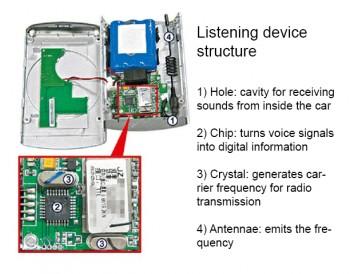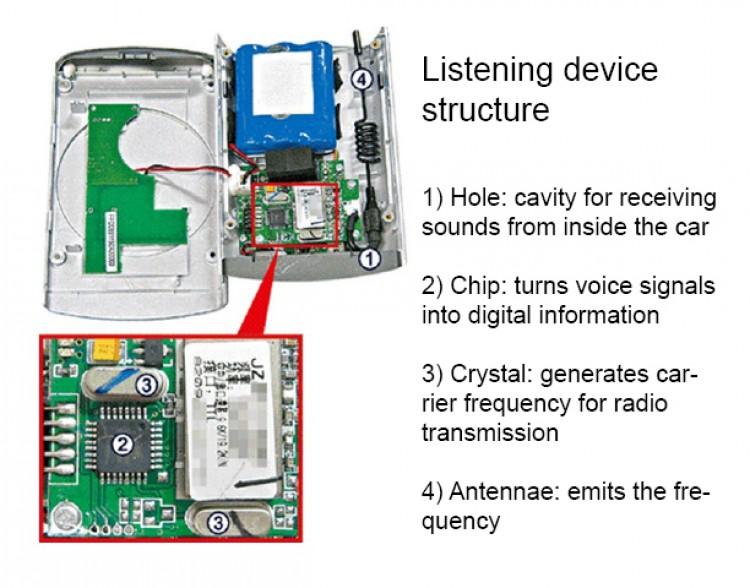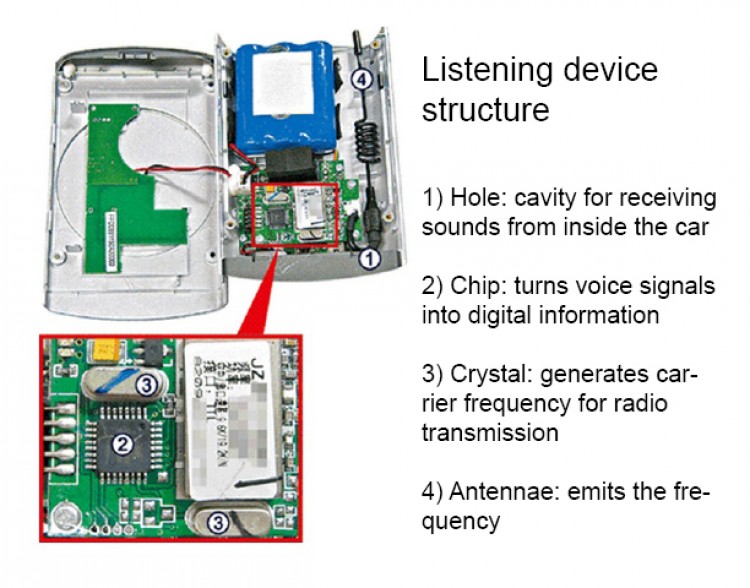Chinese Spying Devices Installed on Hong Kong Cars (Video)
Chinese officials have been installing spying devices on dual-plate Chinese-Hong Kong vehicles, enabling a vast network of eavesdropping across the archipelago.

The listening device as photographed and documented by Apple Daily, a Hong Kong newspaper. Explanatory slide by The Epoch Times
|Updated:
Matthew Robertson is the former China news editor for The Epoch Times. He was previously a reporter for the newspaper in Washington, D.C. In 2013 he was awarded the Society of Professional Journalists’ Sigma Delta Chi award for coverage of the Chinese regime's forced organ harvesting of prisoners of conscience.
Author’s Selected Articles






